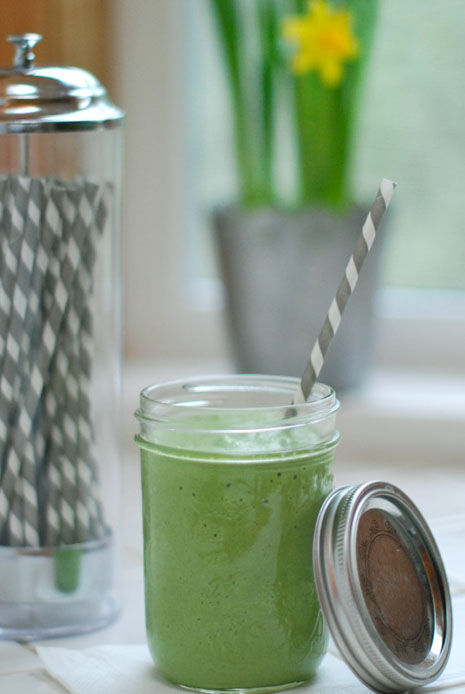This was something I got asked on my I Quit Sugar forums a lot. I promised to get to the bottom of the conflicting information…Et voila!

In a coconut shell.
1. yes, there is in fact sugar in coconut water
All coconuts contain sugar. The levels depend on the type of coconut, and it’s age. Something to note though, even the coconuts with the higher levels of sugar still only contain around 2.95ml of sugar per 100ml, which is not a lot. As I’ve shared in my I Quit Sugar ebook, best to stay under 4.7ml of sugar per 100ml. Of course, a bottle of coconut water – which is how most of us get our coconut water – is generally about 300ml. So. In one bottle there can be up to 9g of sugar, which is 2.5-ish teaspoons.
2. yeah, but how much of that is fructose?
Well. Not so much. And this is what counts. A Brazilian study found the sugar content of an average baby coconut to be made up of:
glucose 50%, sucrose 35%, and fructose 15%
So fructose makes up a maximum of 32 per cent of the total sugars (remember: sucrose is 50/50 fructose and glucose), and often a lot less (depending on the age of the coconut).
All of which means when you look at that total sugar value on the label, it’s a little misleading. Unlike coke or fruit juice, where we know half (or more) of the sugar content is fructose, coconut water’s sugar content is mostly glucose (which is fine, metabolically speaking).
4. can we still drink it?
Yep. Go for it. The amount of fructose is minimal. But do check the label, and think about keeping your intake to about 200ml (a small cup). Oh, and don’t drink the flavoured ones…the fruit pulp turns it into a fructose fusion!
5. go for the younger coconuts
The concentration of sugars in the water of a coconut increases in the very early months of maturation. This process slowly falls back again at full maturity of the coconut. But, as the coconut ages, there’s less water. So, if you’re buying a whole baby (green) coconut
pick a fresh one between 4 – 6 months, if you have the choice.
6. what’s the deal with coconut water and fructose malabsorption?
People with fructose malabsorption are often told to steer clear of products with coconut. I contacted Dr Sue Shepherd for her advice on this. Sue is an advanced accredited practicing dietician who lectures in gastroenterology at Monash University. Her PhD research was in aspects of coeliac disease, irritable bowel syndrome, and fructose malabsorption. Sue developed the Low FODMAP Diet, which has been accepted worldwide as the first-line dietary therapy for someone with IBS and fructose malabsorption.
Sue: There are two pathways by which we absorb fructose. Firstly, fructose is absorbed freely across the intestine. In people with fructose malabsorption, this pathway is impaired. The second pathway is where fructose is carried across the intestine by glucose (glucose “piggy backs” fructose). This pathway is still active in people with fructose malabsorption, so they can still consume foods with fructose in them, as long as there are equal [or more] amounts of glucose present.
Since coconut water contains a lot more glucose than fructose, all is good. I hope this makes sense??
Sue again: Coconut water is a healthful drink, and is suitable for people with fructose malabsorption. I recommend C Coconut Water. It is 100% organic, nothing added. Great taste – not too strong, and also a great price. I get mine from Spelt Quinoa. It is an amaaazing shop full of organic goodness. Gemma, the owner is extremely knowledgeable and very helpful.
Do you drink coconut water? Any particular recipes you love?

